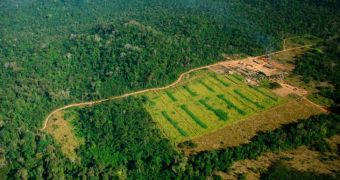A new paper published in a recent issue of the journal Conservation Biology says that some 5.2 million hectares (approximately 12.8 million acres) of land in Brazil lost their protected status between the years 1981 and 2012.
The report, authored by specialists with the Universidade Federal de Pernambuco and Imazon, further details that, within said period of time, protected areas were downgraded, downsized, and degazetted on at least 93 different occasions.
Mongabay informs that, according to data at hand, the majority of the patches of land documented to no longer be protected in Brazil lost this status in recent years. “74% of these changes occurred between 2008 and 2012,” study co-author Elis Araújo details.
Researchers explain that, all things considered, Brazil's developing power industry is the one to blame for the fact that the country is now busy removing the protected status of many of its lands. Thus, it is believed that the so-called dam-building spree in the Amazon basin has had a say in the matter.
Specialists warn that, in time, having this many lands lose their protected status is bound to affect local rainfall and carbon sequestration. Besides, forests that are downgraded, downsized, and degazatted are likely to also have trouble performing other environmental services.

 14 DAY TRIAL //
14 DAY TRIAL //